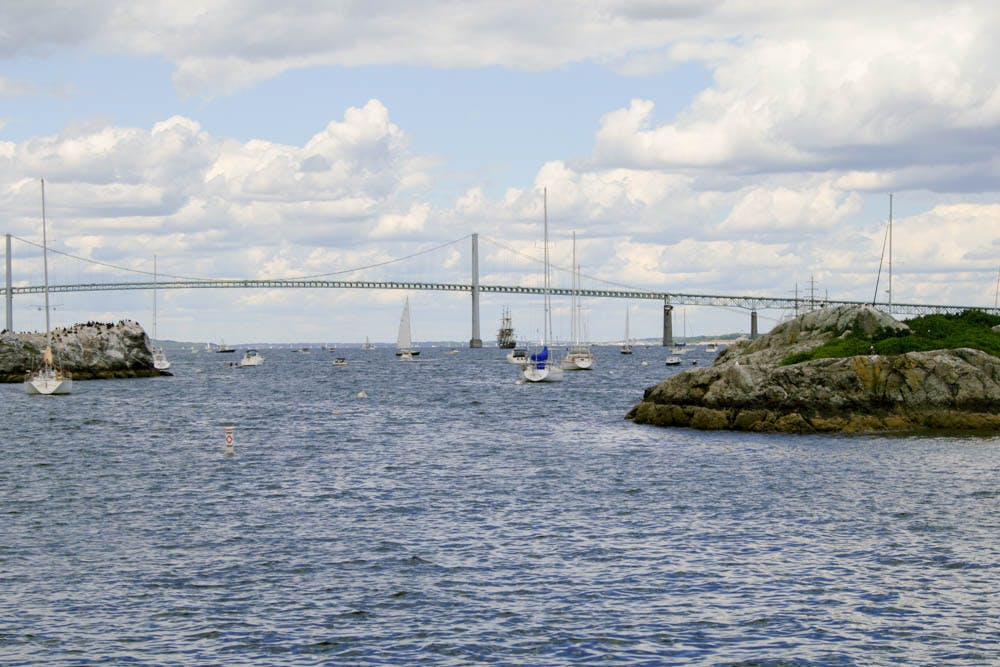Thanks to a $19 million grant from the National Science Foundation, the University of Rhode Island will head a consortium of eight major universities in the Ocean State to study the impacts of climate change on ecosystems, develop improved technologies to detect any changes and seek to predict future activity around the Narragansett Bay through computer models.
The initiative, formally titled the Rhode Island Consortium for Coastal Ecology, Assessment, Innovation and Modeling, consists of a five-year plan that seeks to dig into the already-observed impacts of climate change on Narragansett Bay.
“We know that there has been some sea level rise, and we know that the waters outside the state have been warming,” said Baylor Fox-Kemper, associate professor of earth, environmental and planetary sciences. “There have also been predictions that the Northeast will continue getting wetter and warmer with climate change, which has impacts on the biological, physical and human aspects of the bay’s ecosystem. What we’d like to know is what kind of impacts these changes will present so we can better predict and prepare for them in the future.”
Studying Narragansett Bay will benefit the state economically as well as scientifically.
“The Narragansett Bay is a critical component of the state’s economy,” said Lew Rothstein, professor of oceanography at URI. “Understanding it and nurturing it in the face of climate change is interesting not only from a scientific standpoint, but also for the economy of the state.”
Fox-Kemper cited the historical significance of the bay as one of the key reasons why researchers are continuing to invest in the area. “We have historical data from all around the bay to draw from. Through the research that had been done on the bay in the past, we will be able to take this to the next step and build on the knowledge we have with this enhancement.”
URI will lead this project, which involves scientists from Brown, Bryant University, Rhode Island School of Design, Providence College, Rhode Island College, Roger Williams University and Salve Regina University.
As part of this five-year initiative, the Rhode Island C-AIM plans to build an observatory to study the bay. Through the data collected, researchers hope to construct complex models of these observations while implementing visualization and imaging techniques. Parts of the grant will also be dedicated to funding research and development of innovative equipment and technology, with hopes of achieving greater accuracy and resolution.
“Any politician in Rhode Island should understand the importance of the bay, and the importance of managing the bay,” said Jeffrey Morgan, professor of medicine and engineering. “Our hope is that the better models we create with this project will lead to better management practices for the bay, and will allow the constituents of Rhode Island to realize the importance of the bay.”
Members of the initiative were optimistic about the research’s scientific approach to predicting the impacts of climate variability, as well as its goal to increase awareness about the importance of such changes.
“Data centers will be developed throughout the five years,” Fox-Kemper said. “All of this data that is collected from the observatory and modeled is going to be made available online for anyone to see. The hope is that we, (in) conjunction with the visualization techniques, will make the data easy for anyone to understand.”
The goal of the data centers “is to bring together some of the historical data and the data that we will collect with the new equipment and become a go-to place for information about the bay,” Morgan said.
The state will also contribute an extra $3.8 million on top of the grant toward the initiative. A large part of these funds will be used to support workforce development programs, involving undergraduate students, graduate students, post-doctorates and young faculty in the process.
The funds will also support the Summer Undergraduate Research Fellowship program, which is dedicated to giving undergraduate students an opportunity to participate in large-scale scientific projects while incorporating visualization techniques that highlight the potential benefits of artistic concepts in scientific research.
“One of the aims of SURF is to highlight the resources across the eight schools in the consortium that are available (for) visualization and imaging,” said Neal Overstrom, RISD’s Nature Lab director. “Programs like these are geared towards showing people what they can do, with hopes of them coming to use it for their own projects.”





